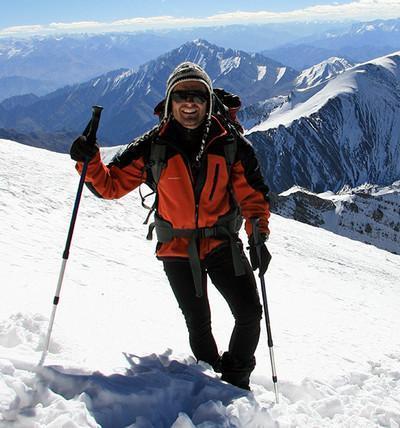When deciding if skiing while pregnant is safe for you, it's important to understand how your body reacts to the activity. If you feel pain or discomfort, stop and rest. Pregnant women's bodies are very different from those of non-pregnant women, so you need to make sure that you can handle the same mountain as you would before becoming pregnant.
Exercise Is Safe for Pregnant Women
Most expecting mothers are told exercise is safe for them to do during their pregnancy. However, some women need to limit their exercise or consult with their healthcare provider before beginning a routine. Generally, if a woman was physically active before her pregnancy, she is safe to continue at the same intensity during pregnancy.
Pregnant women should monitor their own body temperature during exercise. It is important that they stay hydrated, as dehydration can reduce the amount of blood reaching the placenta. If pregnant women begin to feel dizzy or low on energy during exercise, they may be dehydrated. Dehydration also increases the risk of overheating and contractions.
When exercising during pregnancy, it is important not to overstress the joints or over-stretch the muscles. It is best to start your workout slowly and gradually increase the intensity. Exercise should also include a warm-up and cool-down period. Warm-up time helps prepare the muscles for exercise by increasing the heart rate. Skipping the warm-up can result in sore muscles and cramps during the workout.
Exercise at High Altitudes Is Dangerous
Exercise at high altitudes while pregnant is a controversial issue. In the past, a large number of researchers avoided studies in this population because they feared that it could compromise their pregnancy and fertility. However, the effects of exercise at high altitudes are not well understood.
A study in Colorado obstetricians found that pregnant women exposed to high altitudes were more likely to develop pregnancy complications. The most common complications were preterm labor and bleeding complications. The researchers concluded that women exposed to high-altitudes should exercise in lower-altitude areas to prevent such complications.
During the ascent, half of the pregnant women reported uterine contractions, but the contractions did not increase with exercise. However, one participant at 32 weeks gestation experienced frequent and prolonged contractions and was induced to deliver at 39 weeks. The results from the Swiss study suggested that these contractions may have been related to mild dehydration or a rapid ascent to high-altitude.
Falling While Skiing While Pregnant
The truth about skiing while pregnancy is, that falling while skiing while pregnant can have devastating consequences for both the mother and the unborn child. The force from falling will cause the baby to break free from the mother's womb, and this can result in miscarriage. It can also lead to premature labor. For these reasons, it's crucial to avoid skiing while pregnant.
Pregnant women may not be able to ski as easily as they once did, but the risk of falling is still present. Although the risk of falling is lower in the first trimester and during the third trimester, it's still a serious concern. As the baby's weight increases, the center of gravity in the mother changes, making the risk of falling more significant. For this reason, women should seek medical advice before attempting to ski while pregnant.
The brain of a pregnant woman can change, making it more difficult to recognize and assess potential challenges. While pregnant women may still feel sharp, their reflexes may slow down and they may be unable to see hazards as quickly. As a result, pregnancy brain can make a woman more fatigued and less able to focus on skiing. This can also lead to dehydration and extreme fatigue, which may be dangerous. However, if pregnant women still want to ski or snowboard, they should make modifications and adjustments in order to avoid any complications.
Jet Skiing While Pregnant
If you want to take pleasure in jet skiing while you're pregnant, there are some safety precautions you must keep in mind. First, consult your doctor about whether you can safely participate in jet skiing while you're pregnant. You should also be careful not to overdo it. During your pregnancy, your body will experience a variety of discomforts, so you must take it easy and only participate in activities that feel comfortable.
Also, make sure you know where the closest medical facility is. It may be difficult to find a doctor when you're far from the shore. Also, you should avoid extreme water activities that might make you feel sick. If you feel nauseated, stop the activity immediately and continue only when you feel okay. While wearing a lifejacket can help reduce some risks, it doesn't guarantee 100% safety. It's also vital to wear a lifejacket that fits properly. Wearing a lifejacket that is uncomfortable can cause discomfort during the activity.
Pregnant women are advised to avoid extreme outdoor activities during their third trimester, as this is the most risky. Pregnancy is a challenging time for a woman's body, and jet skiing is no exception. It can cause serious harm to the unborn child and is best avoided during this time. If you really want to try skiing, here's how to make doctor listen to your concerns.





